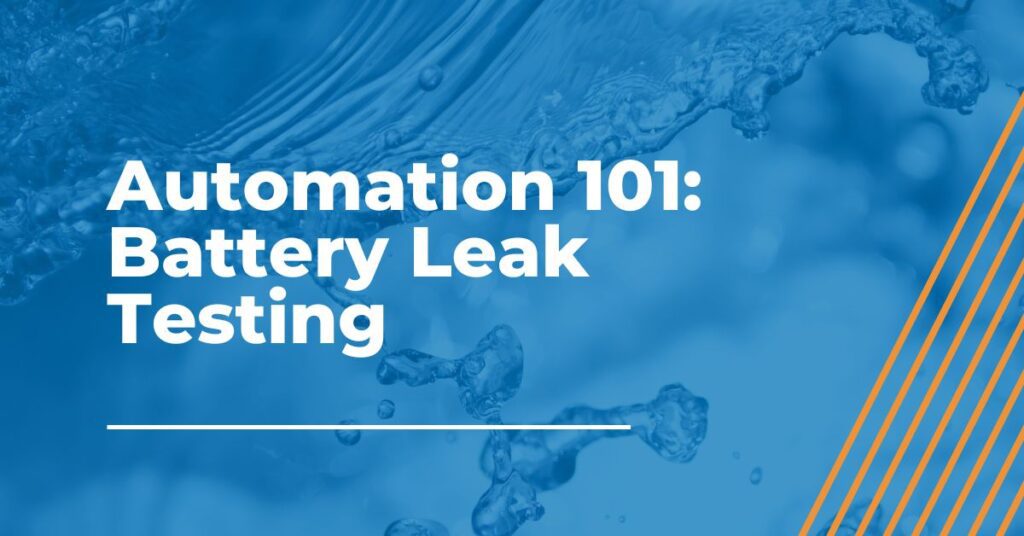
Ready to Roll: Battery Leak Testing
Sometimes opposites attract, but not when it comes to water and batteries. Just the smallest amount of water vapor can damage lithium-ion batteries in vehicles. But because we need to be able to drive in different weather conditions including rain and snow, battery trays and covers are designed to protect the battery cell. EV suppliers have to ensure that these trays and covers are tightly sealed, which is where leak testing comes in.
Car batteries need to be leak free and protected from liquid for at least 10 or more years. Dependable battery leak testing is vital because they contain highly flammable electrolytes that can cause a fire. As previously mentioned, the smallest bit of water vapor or humidity can affect the system causing it to short circuit, reduce service life and hinder performance.
End-of-Line vs. In-Process Battery Leak Testing
Most manufacturers use both end-of-line and in-process battery leak testing. While in-process testing tests components and subassemblies during steps in the production cycle, end-of-line testing acts as the final checkpoint before the finished product leaves the production line. When a test identifies a leak, the product must be reworked or discarded.
Testing Battery Trays and Lids
Typically rectangular or T-shaped, battery packs are made of plastic, aluminum or steel and are assembled with either fasteners, structural adhesives or welded joints. Battery trays are inspected empty before the battery is installed. Because battery trays are heavy, high volume, and move and expand, it can be difficult to get a good test result reading. The trays can be leak tested using methods such as tracer gas accumulation or sniffing method. The sniffing method includes filling the container with helium and scanning a sniffer probe over it to measure leakage at suspect locations.
Aspects like rigidity can impact leak testing because materials with low rigidity can bend and deflect more. Even the influence of barometric pressure change in the factory can cause enough deflection to vary results in the testing.
Some EV suppliers are developing new battery enclosures made with mixed materials like composites as they reduce weight, improve strength, stiffness and vehicle safety. Although composites make leak testing more difficult due to lower leak rates.
Choose AMS for Battery Leak Testing
AMS has in–depth experience with several different types of leak testing. We produce leak testing machines for a wide variety of uses including automotive applications, medical devices, consumer products and other industrial products. We develop the best leak testing machines for your application through our thorough design and build process. Book a meeting with us today to review your leak testing needs.
